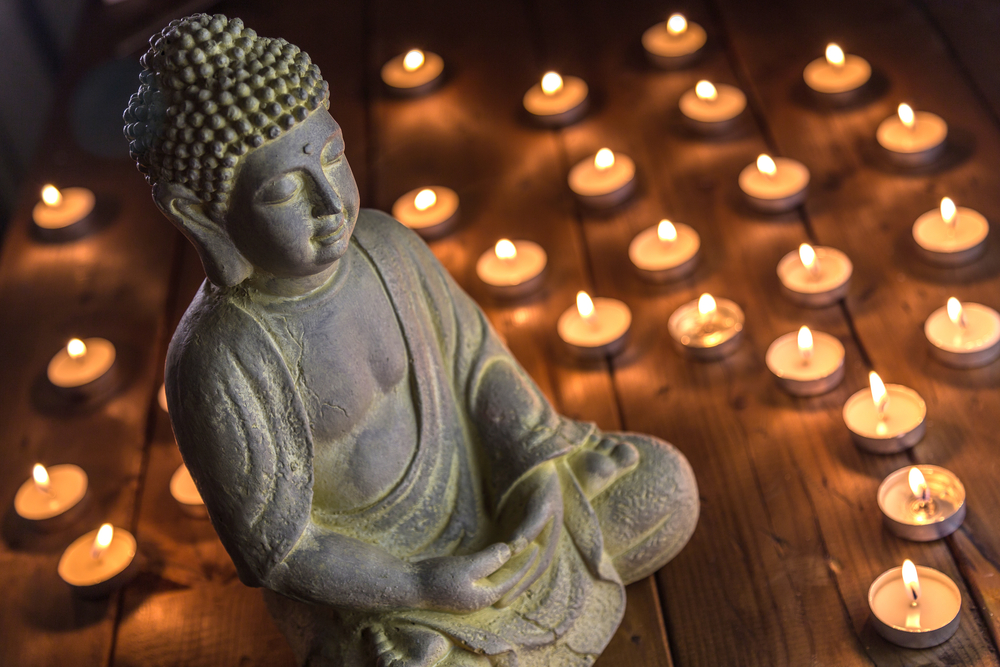The fifth skillful means for working with difficulties is called Enacting It Mindfully. Let’s face it, we act out most of our desires anyway. In the fifth way, we take whatever difficulty has repeated itself, and fulfill it while being fully aware of what is happening throughout the whole process. There are two restrictions for taking this as a practice. First, it must not be genuinely harmful to yourself or any other being. Second, it must be done mindfully. Thus, if it is a desire, we act on it, paying meticulous attention the whole time. If it is something that needs to be expressed, we express it, observing our attention, the state of mind, the feeling in the body, the constriction or openness of heart as we do it. We observe the entire process and let the experience, the feelings in our body, and the consequences become our teacher. That is a powerful place where we can awaken. Remember, however, it is important not to harm yourself or another being in the process.
As a first step we may simply exaggerate our difficulty. In Thailand, Achaan Chah instructed one student who was often angry to begin this process by closing himself in a tiny tin hut on a hot tropical day. He directed him to wrap himself in his winter robes and stay angry, really letting himself feel it fully. Enacting mindfully has another step. A teacher with whom I studied in India was hooked on sweets. He just loved gulab jaman. Gulab jaman is so sweet it makes baklava seem like dry toast. After trying inner discipline and meditation unsuccessfully, he decided to work with this by acting it out. One day he went to the market and ordered thirty rupees’ worth of gulab jaman. This is a mountain of sweets ɻoating in an ocean of sugary syrup. He sat down with this and mindfully made himself eat as much of it as he could, noticing all that happened to him in the process. He saw the peacefulness that came the moment the desire ended (at the first bite). He felt the pain of the desire. He felt the pleasure of the sweetness. He sensed the pleasure turn into oppression as he continued eating the same desired object, a mountain of gulab jaman. In the end he was never again plagued by the unquenchable desire for gulab jaman.
This is a somewhat advanced form of practice. It does not mean repeatedly binging or acting out our compulsion over and over. It means doing it once while being truly present and honestly awake for all that happens, learning from the first action to the last consequence.
As you can see, there are many ways to dance with our difficulties. Each one is a movement from unconsciousness to open attention. We can study them, or we can just let them go. We can transmute them and learn to make these energies a useful part of our practice. When we’re unable to do this, we can put them aside and later ɹnd a safe and supportive circumstance in which to work with them. Beyond this, we can exaggerate them in our imagination to come to terms with them. We can mindfully enact them. All of these ways keep our practice growing, heartfelt, and alive.
When the Indian saint Ramakrishna was asked why there is evil in the world, he answered, “To thicken the plot.” These very plot thickeners, often the most difficult and insistent ones, can lead us to open our bodies, hearts, and minds. In doing so, we discover that these were never our true identity. Under all the tears, the pain, the fear, and the anger we have contracted ourself around, we can find freedom, joy, and ease in the face of all life.
This excerpt is taken from the book, “A Path with Heart“





